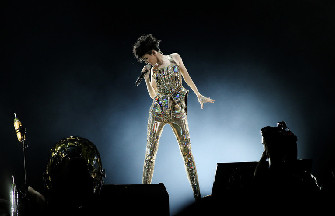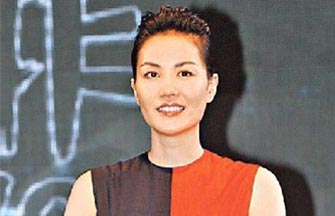Capital causes a stir
Updated: 2014-08-06 07:19
By Xing Yi (China Daily)
|
||||||||
The long-awaited Chinese translation of French economist Thomas Piketty's book, Capital in the Twenty-First Century, has triggered a debate among academics, as excerpts are published in newspapers ahead of the book's release. Xing Yi reports.
Capital in the Twenty-First Century by French economist Thomas Piketty has caused a stir among Chinese academics as excerpts are published in newspapers ahead of the release of the full translation this fall. Citing the work of Honore de Balzac, whose books depicted the inequality of European societies in the 19th century, Piketty, 43, says a "patrimonial society" where most of the wealth is concentrated in the hands of a few economic elite and their offspring is looming.
"I am interested in this book because it sheds some light on how to narrow the inequality between the rural-urban divide in China," says Ma Jiujie, executive deputy director at the Research Institute of Agricultural Economics and Finance at Renmin University of China.
However, instead of imposing higher taxes on capital as Piketty suggests in the book, Ma thinks that helping peasants to convert their assets to capital to make profit is a better solution for Chinese farmers.
Chinese economist Li Daokui, director of the Center for China in the World Economy at Tsinghua University, points out the biggest limitation of the book is that it doesn't include the economic development in China and other developing countries.
"The income of Chinese people increased dramatically in the past 30 years," Li writes in his blog on Xinhuanet.com. "Therefore, if we calculate the distribution of wealth on a global scale, Piketty's findings might be reversed."
China Citic Press secured the copyright for the Chinese version of the book earlier this year. "We have been paying close attention to the book ever since the French version was published in 2013," says Zhu Hong, deputy director of the second branch of China Citic Press.
Zhu is in charge of introducing the book to China. To ensure the quality of translation, Ba Shusong, deputy director general of the Financial Research Institute at Development Research Center of the State Council, and his research team undertook the translation project.
Zhu says the Chinese version is scheduled to be published in mid-September.
"We have invited Piketty to visit China in November and will arrange forums for Chinese scholars to meet and discuss his work with him," Zhu adds.
Piketty is a professor of economics at the Paris School of Economics, and the book is based on his study of a wide range of data, covering over 300 years and more than 20 countries.
By studying the historical and comparative data about the distribution of wealth since the industrial revolution, Piketty argues that economic growth and diffusion of knowledge cannot change the rigid social structure and avoid growing inequalities as capital grows faster than the economy.
Piketty's strong argument and thorough empirical research attracted criticism and praise when the English version of the book was released on Amazon in March.
Paul Krugman, winner of the Nobel Prize in economics and professor of economics at Princeton University, published three articles in the New York Times praising the book, calling Piketty's work "the most important economics book of the year - and maybe of the decade". However, in the Wall Street Journal, Daniel Shuchman, a fund manager, criticized the book's "medieval hostility to the notion that financial capital earns a return" .

 Star Stefanie Sun holds concert in Beijing
Star Stefanie Sun holds concert in Beijing
 Faye Wong's manager refutes star's drug rumors
Faye Wong's manager refutes star's drug rumors
 Lu Yi and daughter Bei Er pose for street snaps
Lu Yi and daughter Bei Er pose for street snaps
 Photoshoots of actress Li Xiaomeng
Photoshoots of actress Li Xiaomeng
 Council of Fashion Designers of America Awards
Council of Fashion Designers of America Awards
 Fan Bingbing, first Chinese actress in Barbie Hall of Fame
Fan Bingbing, first Chinese actress in Barbie Hall of Fame
 Awarding ceremony of 2014 hito Pop Music held in Taipei
Awarding ceremony of 2014 hito Pop Music held in Taipei
 Zhao Liying's photo shoot for Children's Day
Zhao Liying's photo shoot for Children's Day
Most Viewed
Editor's Picks

|

|

|

|

|

|
Today's Top News
Rescuers race to save lives as quake toll nears 600
589 dead as strong quake jolts SW China
China to punish Chrysler, Audi for anti-trust violations
US interest in Africa grows
Chinese firm developing Ebola reagent
Barrier lakes pose threat in quake-hit Ludian
2 Canadians probed in theft of State secrets
Envoy dismisses building freeze in S. China Sea
US Weekly

|

|





